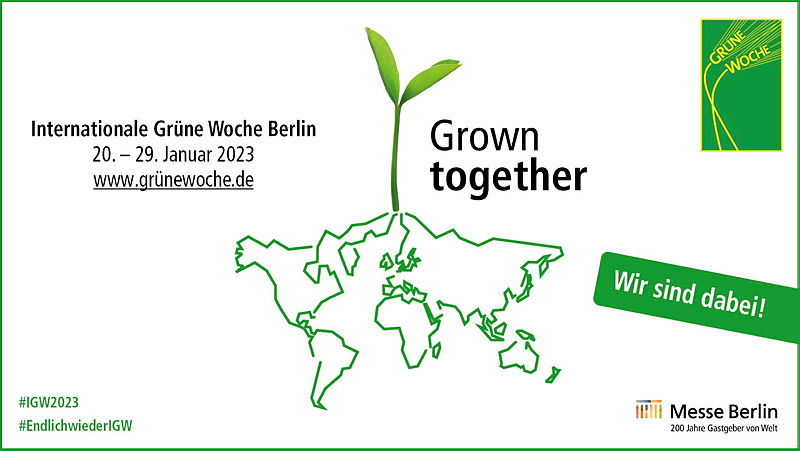International Green Week 2023
How can food production be made more efficient, sustainable and environmentally friendly?
The project Aquaponic:Mobile develops a first concept for the establishment of do-it-yourself aquaponics systems for the African continent. The study area is the Namib Desert in Namibia.
The Blue-Cycling project aims to develop a climate resilient solution for food production, and its provision to society.
At the International Green Week, we use a small replica of an aquaponics system to explain how research is being conducted on the joint production of fish in aquaculture and vegetables in hydroponics (aquaponics).
The vision of the zirkulierBAR project is to recover nutrients from consumed food and return them to agriculture in the sense of a regional sustainable circular economy. zirkulierBAR is building an innovative and scalable recycling plant in Eberswalde (LK Barnim) to refine contents from dry toilets into quality-assured recycled fertilizers. The end products are nutrient-rich and low-pollutant fertilizers for agriculture and horticulture. Municipalities can thus plan and construct a water-saving and resource-conserving alternative to linear water-dependent septic systems.
At the International Green Week we show and explain, our research on plants fertilized with urine fertilizers and conventional fertilizers.
